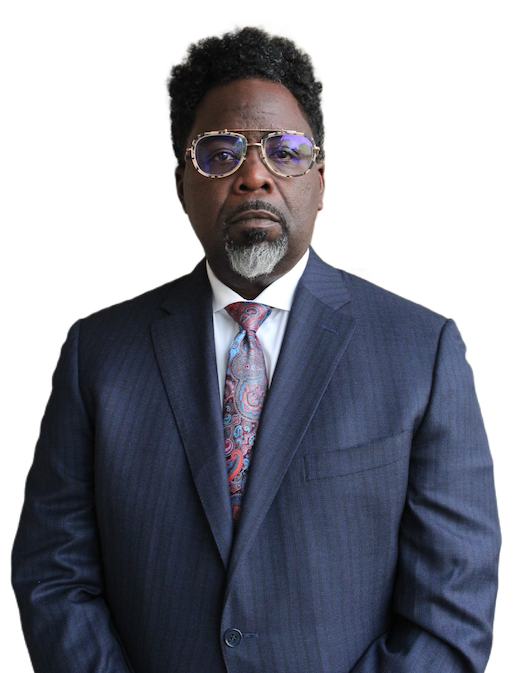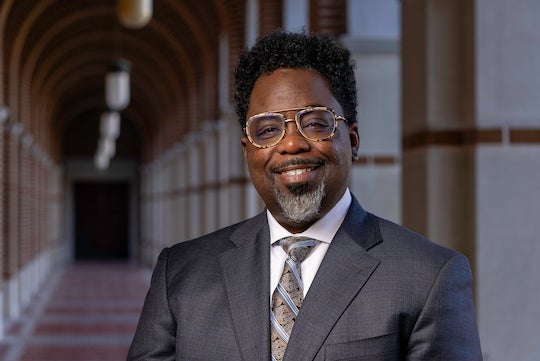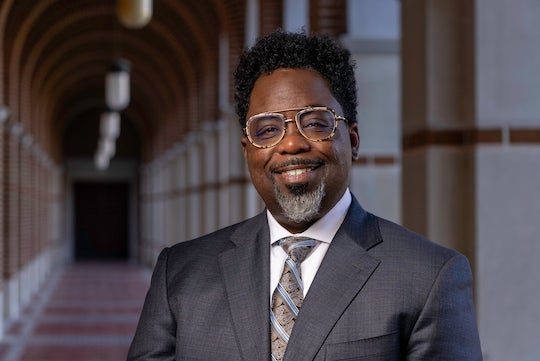Sherwin K. Bryant, a leading scholar of slavery, race and the early modern African diaspora, will join Rice University Jan. 1 as director of the Center for African and African American Studies (CAAAS) and an associate professor in the Department of History.

“I am honored to join the Rice faculty as director of the Center for African and African American Studies at this moment in history,” Bryant said. “The 2020 global Black protests against the enduring legacies of slavery, colonialism and racial rule catalyzed commitments to Black history and Black knowledge. Now, an onslaught of attacks against Black knowledge confront our world and the very lives of Afro-descendant populations. These protests and observations honed during that time inform my aims in leading CAAAS.
“Joining this dynamic community of scholars addressing Africa and the African diaspora across the Americas offers a unique opportunity to contribute to the field of Black studies, the humanities and the social sciences at a critical moment in history,” he continued. “As Rice emerges to engage its own history of slavery, segregation and racial injustice, CAAAS promises to help situate Rice as a major hub for African and Black thought in the global south. Along the way, we will provide new opportunities for undergraduate learning, research and knowledge production. As an alum of North Carolina Central University, I am excited about the Southeastern Texas African and African American Studies Consortium and the expanding partnership between Rice and Texas Southern University.”
“I am thrilled to welcome Dr. Sherwin Bryant to Rice as the new leader of our Center for African and African American Studies,” Rice President Reginald DesRoches said. “Sherwin’s dedication to advancing the understanding of African and African American history and culture, coupled with his commitment to fostering inclusivity and diversity, will undoubtedly propel our center to new heights. I look forward to the transformative impact Sherwin will bring to our university community and beyond.”
Amy Dittmar, the Howard R. Hughes Provost and executive vice president for academic affairs, said Bryant’s vision for African and African American studies will enhance the scholarship already taking place at Rice.

“Sherwin’s leadership will position the university to have a greater positive impact in the community and beyond,” Dittmar said.
“We are inspired by his plans for CAAAS,” added Rachel Kimbro, dean of the Rice School of Social Sciences. “We’re looking forward to working with him to help the center grow its reach and profile on campus and throughout the country and greater world.”
Bryant currently serves as an associate professor of Black studies and history at Northwestern University. He is the former co-director of the Andean Cultures and Histories working group in the Weinberg College Center for International and Area Studies and a former director of Northwestern’s Center for African American History .
Bryant’s work, which has appeared in journals including The Americas and Colonial Latin American Review, explores the lives of people of African descent in Latin America, especially in the north Andean regions of what are now Ecuador and Colombia. His first monograph, “Rivers of Gold, Lives of Bondage: Governing through Slavery in Colonial Quito,” (University of North Carolina Press, 2014) is the first English language examination of slavery in Ecuador and southern Colombia, advancing an understanding of the early modern history of race as a way of showcasing the political importance of slavery in the Americas. He is also the co-editor of “Africans to Spanish America: Expanding the Diaspora,” (University of Illinois Press, 2012), an early state-of-the-field volume expanding the history and importance of Afro-Latin American studies.
Bryant is also the 2021 Mellon/ACLS Scholar and Society Fellow with the African American Heritage Foundation of Southeastern North Carolina, where he was the principal investigator for “Just Across the River: Black Histories of Brunswick County,” a place-based, community-engaged research project that explores the history of slavery and the Black communal formation in Brunswick County just across the river from Wilmington, North Carolina. The work includes a series of oral histories that concern the history of Black sacred and social spaces such as churches, cemeteries, schools and juke joints to make visible regional Black geographies in the face of development and displacement.
“Professor Bryant’s vision for CAAAS forges innovative connections between his current scholarly explorations of Black communal formation in North Carolina and the aspirations of CAAAS to reach into Gulf Coast communities and build closer ties to universities and colleges in our region,” said Kathleen Canning, dean of Rice’s School of Humanities. “As a scholar of Latin America, professor Bryant expands the reach of CAAAS in exciting ways. We look forward to working with him in the coming years on extending the reach and impact of CAAAS into new arenas of research, teaching and community engagement.”
Dittmar expressed thanks to search committee co-chair and outgoing CAAAS interim director Jeffrey Fleisher, committee co-chair Fay Yarbrough and search committee members Jim Sidbury, Margarita Castroman and Jenifer Bratter for their leadership throughout the selection process.
CAAAS was established in 2019 and is Rice’s home for curriculum and research related to Africa and to people of African descent in the Americas and beyond. The center is a hub for critical conversations on issues of national and international importance, instruction, teaching resources, cutting-edge interdisciplinary research and community outreach.
More information on CAAAS is online at https://caaas.rice.edu/about.

